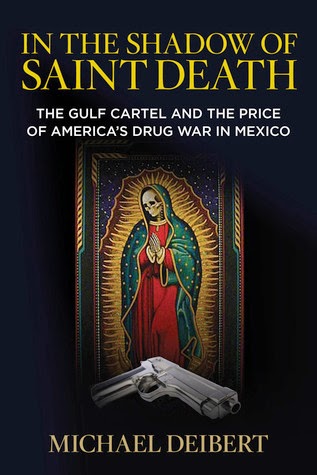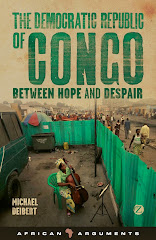During the past year, for the first time, I kept a record of all the books that I read. With the year drawing to a close, I thought it might perhaps be helpful to share my thoughts on some of the more notable ones that came across my path.
Best regards,
MD
Things Fall Apart by Chinua Achebe
Chinua Achebe’s elegiac and tragic story of the clash of cultures between Africa and Europe was every bit as moving now - after I have spent some time in Africa - as it was when I first read it in high school 20 years ago.
Dreamkeepers: A Spirit-Journey into Aboriginal Australia by Harvey Arden
National Geographic writer Harvey Arden’s penned this quite beautiful account of his conversations with Aboriginal elders nearly 15 years ago, and when I traipsed through similar terrain earlier this year I found the respect with with it treats its subjects highly apt.
Fulgencio Batista: Volume 1, From Revolutionary to Strongman by Frank Argote-Freyre
This revelatory portrait of the formative years of Cuba’s pre-1959 leader portrays him as self-made, ambitious, ruthless, initially idealistic and then severely corrupted by power. The boy from a dirt-floor shack in Banes here stands as a fully-drawn personality as opposed to a mere slogan.
Reconstruction After the Civil War by John Hope Franklin
The eminent African-American history, who sadly passed away earlier this year, lays bare in an authoritative manner that “reconstruction,” such as it was after the American Civil War, was largely a fraud, with the South almost wholly under the control of reactionary southern whites. Highly relevant today, when a South Carolina congressmen sees fit to scream “You lie!” at the nation’s first biracial president during a congressional address.
Resistance and Betrayal: The Death and Life of Jean Moulin by Patrick Marnham
The riveting story of the man who became the most iconic figure of France’s resistance to Nazi occupation is made all the more poignant by the realization of how isolated the resisters were under the boot of a brutal fascist military occupation and amidst the acquiescence of the French population as a whole. The grotesque excesses of revenge, score settling and ideologically-based brutality that followed the arrival of allied forces in France also make for a somber punctuation to this chronicle of human bravery and duplicity.
The Unknown War: The Miskito Nation, Nicaragua and the United States by Bernard Nietschmann
The gifted geographer Bernard Nietschmann worked strenuously for decades to help indigenous peoples chart their own fates. As a result, the longtime fixture at the University of California-Berkeley weathered criticism from comfortable foreign supporters of Nicaragua’s Sandinista government (whose treatment of said groups within their borders was brutal), but in this book he lays bare the epic quest for survival of this indigenous group in Honduras and Nicaragua, often caught up in power struggles between forces far beyond their control.
Stars of the New Curfew by Ben Okri
This book is a collection of haunting and often surreal short stories by one of Nigeria’s greatest living authors
The Road to Wigan Pier by George Orwell
A book as inspiring by its intellectual honesty as for its faith in solutions that common decency demands, Orwell’s account of the life of miners in the north of England - penned shortly before he departed to fight against the fascists in Spain - is also notable for its highly moral thesis that “the people who have got to act together are all those who cringe to the boss and all those who shudder when they think of the rent...Poverty is poverty, whether the tool you work with is a pick-axe or a fountain pen.”
Indeed, and well said.
Snow by Orhan Pamuk
A fairly gripping novel of politics and thwarted romantic set in rural Turkey by this 2006 Nobel Prize winner.
Gomorrah: A Personal Journey into the Violent International Empire of Naples' Organized Crime System by Roberto Saviano
A stunning non-fiction work that earned its young Italian journalist-author a death sentence from Naples’ grotesque Camorra crime syndicate, this book pulls back the veil on the brutal face of Silvio Berlusconi’s Italy
Streets of Lost Footsteps by Lyonel Trouillot
A short work delivered by multiple narrators during the final apocalyptic battle between the cadres of the dictator Deceased Forever-Immortal and the followers of the Prophet, this novel by one of Haiti’s most gifted authors (and winner of this years’ Wepler Prize in France) should be put alongside the writings of Jacques Roumain, Jacques Stephen Alexis and Gary Victor as required reading for those seeking to understand Haiti beyond its bare history. Originally published as Rue des Pas-Perdus in French.
Zapata and the Mexican Revolution by John Womack, Jr.
A highly valuable if somewhat somewhat jarringly passionless account of the storied Mexican revolutionary, this 1968 book nevertheless should stand as an example of genuine scholarship about a politically controversial figure in an era (our own) where academia is often conspicuously lacking in such virtues.
Subscribe to:
Post Comments (Atom)




No comments:
Post a Comment